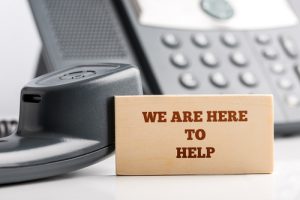
U.S. Rep. Tom Marino (R-PA) on Jan. 11 introduced a bipartisan bill that would better link the American public with a federal treatment referral hotline providing newly added pre-arrest, prison-deterrence support.
Rep. Marino’s bill is timely as the United States currently struggles to overcome an opioid overdose epidemic. The Centers for Disease Control and Prevention reports that prescription and illicit opioids were involved in more than 42,200 deaths in 2016, which is five times larger than the same data collected in 1999.
“We have seen too many people lose their lives to drug addiction over the years with no clear end in sight. This is a serious problem and Congress must act,” Marino said in a Jan. 11 statement following introduction of the Helping Americans Seek Treatment Act of 2018, H.R. 4769.
“As a former district attorney and United States attorney, I understand the importance of strict drug laws,” the lawmaker said. “However, I do not believe we can arrest our way out of this opioid crisis.”
H.R. 4769 aims to help rectify the problem by guiding Americans toward treatment that could assist them in living “a healthy, drug-addiction free lifestyle,” the congressman said.
H.R. 4769 would require the federal Substance Abuse and Mental Health Services Administration (SAMHSA) to ramp up public awareness efforts about the free and confidential National Helpline, a 24-hour-a-day, 365-days-a-year hotline the agency offers in English and Spanish to individuals and their families struggling with mental health and substance use disorders. The National Helpline at 1-800-662-HELP (4357) gives callers referrals to local treatment facilities, support groups and community-based organizations, and provides other related information services, according to SAMHSA’s website.
H.R. 4769 also would direct SAMHSA, an agency within the U.S. Department of Health and Human Services, to provide National Helpline callers with details about available pre-arrest referral programs. Such programs generally are community-based services coordinated with local law enforcement. The programs provide police officers with alternatives to arrest and prosecution for low-level offenses, according to the International Association of Chiefs of Police.
Low-risk offenders oftentimes commit nonviolent crimes attributable to addiction, mental illness and/or extreme poverty, according to several nonprofit groups.
Pre-arrest diversion programs are a beneficial tool that local jurisdictions might utilize to help keep such offenders out of the prison pipeline, Marino’s office said.
U.S. Rep. Karen Bass (D-CA) joined Marino in introducing the bill.
“As we grapple with an expanding opioid epidemic and the consequences of a past crack epidemic that together have touched each corner of our country, we must find new and creative ways to help those affected,” Rep. Bass said. “We’ve seen the devastation that attempting to arrest our way out of a drug epidemic can cause.”
The bill is awaiting consideration by the House Energy and Commerce Committee.



